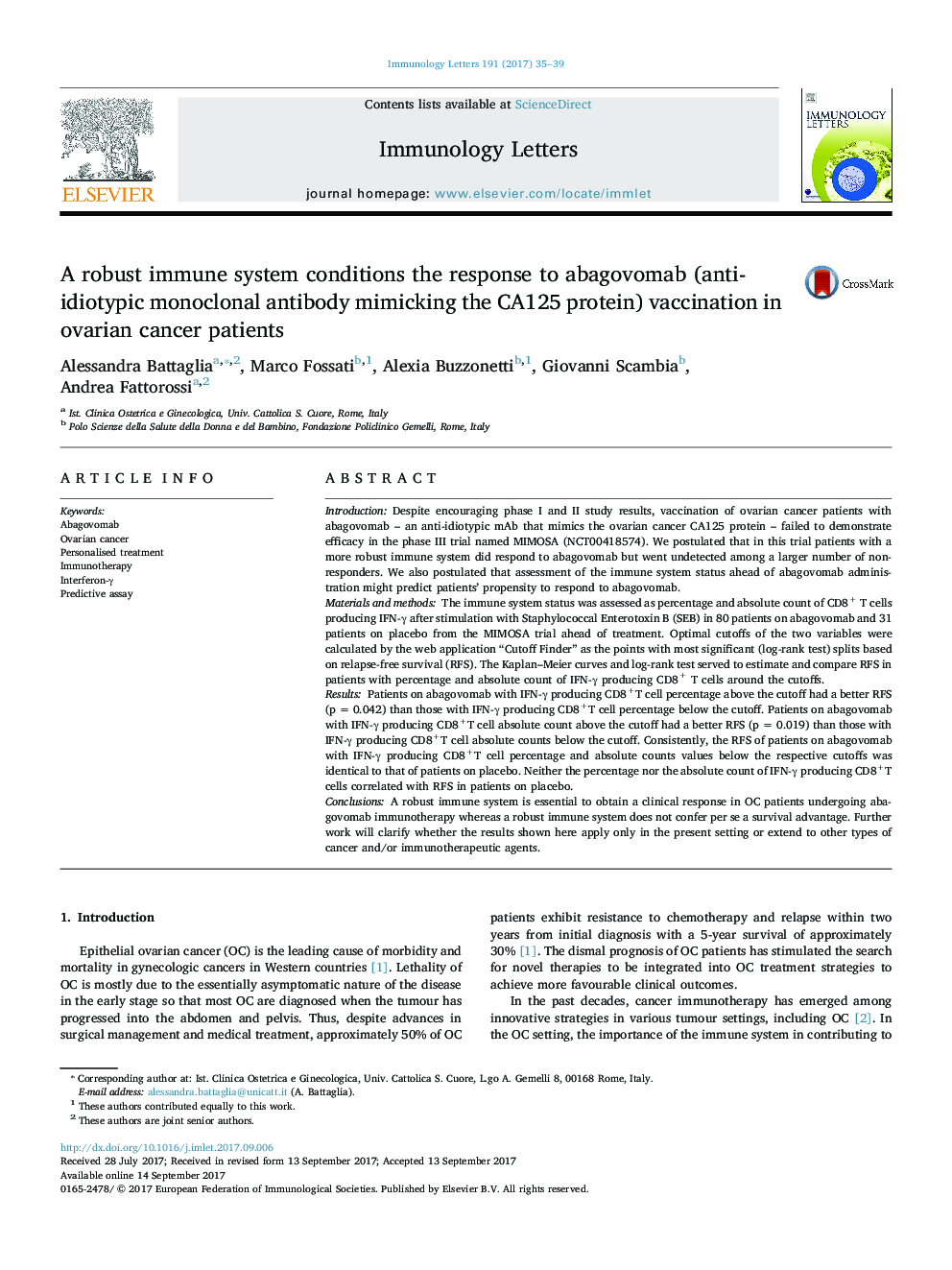| کد مقاله | کد نشریه | سال انتشار | مقاله انگلیسی | نسخه تمام متن |
|---|---|---|---|---|
| 5666650 | 1591535 | 2017 | 5 صفحه PDF | دانلود رایگان |

- A robust immune system prior to treatment conditions abagovomab clinical efficacy in ovarian cancer patients.
- Administering abagovomab to patients with a weak immune system is completely ineffective.
- The immune system robustness can be measured as a percentage and absolute count of IFN-γ producing CD8+ T cells after SEB stimulation in vitro.
IntroductionDespite encouraging phase I and II study results, vaccination of ovarian cancer patients with abagovomab - an anti-idiotypic mAb that mimics the ovarian cancer CA125 protein - failed to demonstrate efficacy in the phase III trial named MIMOSA (NCT00418574). We postulated that in this trial patients with a more robust immune system did respond to abagovomab but went undetected among a larger number of non-responders. We also postulated that assessment of the immune system status ahead of abagovomab administration might predict patients' propensity to respond to abagovomab.Materials and methodsThe immune system status was assessed as percentage and absolute count of CD8+ T cells producing IFN-γ after stimulation with Staphylococcal Enterotoxin B (SEB) in 80 patients on abagovomab and 31 patients on placebo from the MIMOSA trial ahead of treatment. Optimal cutoffs of the two variables were calculated by the web application “Cutoff Finder” as the points with most significant (log-rank test) splits based on relapse-free survival (RFS). The Kaplan-Meier curves and log-rank test served to estimate and compare RFS in patients with percentage and absolute count of IFN-γ producing CD8+ T cells around the cutoffs.ResultsPatients on abagovomab with IFN-γ producing CD8+T cell percentage above the cutoff had a better RFS (p = 0.042) than those with IFN-γ producing CD8+T cell percentage below the cutoff. Patients on abagovomab with IFN-γ producing CD8+T cell absolute count above the cutoff had a better RFS (p = 0.019) than those with IFN-γ producing CD8+T cell absolute counts below the cutoff. Consistently, the RFS of patients on abagovomab with IFN-γ producing CD8+T cell percentage and absolute counts values below the respective cutoffs was identical to that of patients on placebo. Neither the percentage nor the absolute count of IFN-γ producing CD8+T cells correlated with RFS in patients on placebo.ConclusionsA robust immune system is essential to obtain a clinical response in OC patients undergoing abagovomab immunotherapy whereas a robust immune system does not confer per se a survival advantage. Further work will clarify whether the results shown here apply only in the present setting or extend to other types of cancer and/or immunotherapeutic agents.
Journal: Immunology Letters - Volume 191, November 2017, Pages 35-39